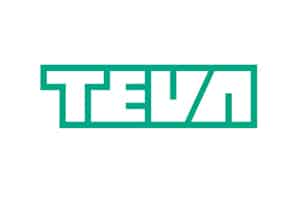
Teva and partner Active Biotech have vowed to continue developing laquinimod as an oral therapy for multiple sclerosis (MS), despite being rejected for approval in the EU.
The EU’s Committee for Medicinal Products for Human Use (CHMP) issued a negative opinion for laquinimod in January – which was re-examined but confirmed at its meeting this week – but Teva and Active Biotech still feel the project has potential.
“Both companies remain committed to the [laquinimod] clinical development programme for MS and are focused in evaluating the CHMP feedback to determine potential next steps,” they said in a statement.
Laquinimod was filed for approval in Europe with the proposed trade name of Nerventra as an oral treatment for patients with the relapsing-remitting form of MS. This was on the back of clinical data suggesting it could decrease disability progression and protect against brain volume loss in the disease.
Teva is determined to bolster its MS franchise – currently represented by $4bn-a -year blockbuster injectable drug Copaxone (glatiramer acetate) – in the face of increasing competition from new oral agents, such as Biogen Idec’s fast-growing Tecfidera (dimethyl fumarate) and Novartis’ Gilenya (fingolimod).
Copaxone is already facing the threat of generic competition to the original formulation of Copaxone that requires daily injections. The US patent for that version is due to expire tomorrow but Teva is continuing to battle against generics in the courts, and in the meantime the company has been trying to transition patients to a new three-times-weekly version.
Alongside that effort, the company wants to add an oral agent to its portfolio to compete against its fast-emerging rivals, and laquinimod is its main hope given that an oral version of Copaxone bombed in clinical trials.
Teva is carrying out a large-scale trial of laquinimod – called CONCERTO – to try to demonstrate the drug’s effects on disability progression and expects this to complete in 2018. Meanwhile the company is also planning to start trials of the drug in progressive forms of MS.
“We are disappointed with the outcome of the re-examination and will be working with the EMA to make Nerventra available to MS patients in the EU,” commented Teva’s chief scientific officer Michael Hayden.




